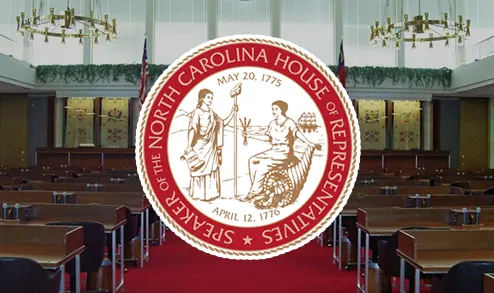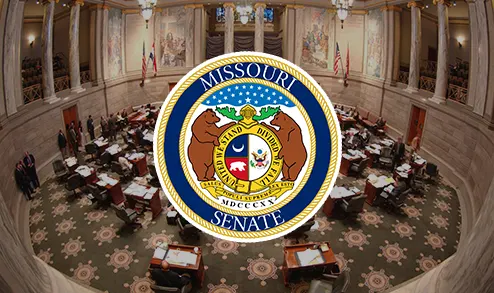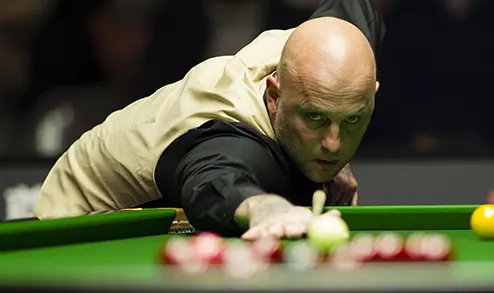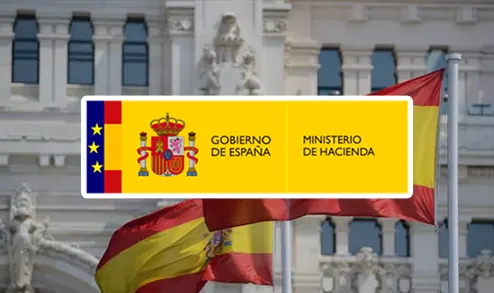 This Wednesday, a bill seeking to legalize sports betting in North Carolina was swiftly approved by the House Finance Committee. The legislative effort must receive approval from the House Rules Committee before it advances to the House for consideration. If the bill becomes law, the first sports betting platforms are expected to enter North Carolina’s market on January 1, 2024.
This Wednesday, a bill seeking to legalize sports betting in North Carolina was swiftly approved by the House Finance Committee. The legislative effort must receive approval from the House Rules Committee before it advances to the House for consideration. If the bill becomes law, the first sports betting platforms are expected to enter North Carolina’s market on January 1, 2024.
Proposed Amendments to the Bill Collapsed During Committee Meetings
The House Commerce Committee voted 17-10 for the measure this Tuesday, sending it to the House Finance Committee, where the proposed legislation was also approved without much debate. Now, the sports betting bill heads to the House Rules Committee. Should the legislation succeed there, it will move on to the Senate. In 2022, efforts to legalize sports betting in the state failed due to raising concerns about the potential risks of gambling. The House voted 51-50 to reject to proposed measure that would legalize sports betting in North Carolina.
With over 50 sponsors from both parties, the current legislation has a bright future. However, several amendments were proposed during the last committee meeting. Rep. Tim Longest was among the lawmakers who tried and failed to remove promotional tax deductions and increase the tax rate from 14% to 51%. Rep. Jason Saine, one of the bill’s sponsors, explained that such a steep tax rate would prevent major operators such as BetMGM and DraftKings from entering the market.
During the House Judiciary Committee meeting, where the bill passed by a 7-3 vote, Rep. Pricey Harrison proposed an amendment to the bill that would have raised the penalties imposed on operators who breach the state’s gambling law from $10,000 to $1 million. She also suggested an increase in licensing fees from $1 million to $10 million and attempted to remove amateur and Olympic sports betting from the bill. But the committee members rejected all proposed amendments.
Key Provisions of the Sports Betting Legislation
The latest version of House Bill 347 would authorize 10 to 12 operators to offer mobile sports betting services in North Carolina. Besides, it would impose a tax of 14% on operators, who would be allowed to benefit from deductions for promotional costs.
Besides, no limits would be imposed on deductions until January 1, 2025. After that, a cap of 2.5% of gross wagering revenue would be introduced. Under the proposed legislation, people physically located in North Carolina would be able to wager on Olympic, professional, college, and electronic sports. Currently, only the three tribal casinos in North Carolina provide residents of the state with the opportunity to wager on sports.
According to a fiscal analysis of House Bill 347, North Carolina would collect less than $3 million in tax revenue in the first six months because operators would be able to deduct an unlimited amount of promotional costs. Under the legislation, $300,000 of the revenue generated from sports betting would go to fund athletic departments of small universities.
 This Wednesday, the Missouri House voted 118-35 in favor of a sports betting bill, which would impose a 10% tax on operators’ net winnings. Now, the legislation moves on to the Senate, but its future remains uncertain. Before the sports betting bill becomes law, it must receive approval from the House, the Senate, and the governor. Previous attempts to legalize sports betting in the state have failed due to disagreements among legislators.
This Wednesday, the Missouri House voted 118-35 in favor of a sports betting bill, which would impose a 10% tax on operators’ net winnings. Now, the legislation moves on to the Senate, but its future remains uncertain. Before the sports betting bill becomes law, it must receive approval from the House, the Senate, and the governor. Previous attempts to legalize sports betting in the state have failed due to disagreements among legislators.  This Tuesday, the right-wing Spanish Socialist Workers’ Party (PSOE) joined forces with other right-wing and neutral parties in an effort to defeat a proposal seeking to prohibit gambling companies from advertising their services in tourist areas and airports. But this attempt does not coincide with the Balearic Islands’ left-wing government wishes.
This Tuesday, the right-wing Spanish Socialist Workers’ Party (PSOE) joined forces with other right-wing and neutral parties in an effort to defeat a proposal seeking to prohibit gambling companies from advertising their services in tourist areas and airports. But this attempt does not coincide with the Balearic Islands’ left-wing government wishes.  The Norwegian Ministry of Children and Families has proposed a bill seeking to amend the Right of Withdrawal Act, exempting gambling from it. The Ministry’s goal is to reshape the law in a way that reflects the modern gambling environment and combat illegal gambling activities. The Norwegian Industry Association for Online Gambling (NBO), however, did not fully embrace the proposal, explaining that stringent regulations fuel the illegal market.
The Norwegian Ministry of Children and Families has proposed a bill seeking to amend the Right of Withdrawal Act, exempting gambling from it. The Ministry’s goal is to reshape the law in a way that reflects the modern gambling environment and combat illegal gambling activities. The Norwegian Industry Association for Online Gambling (NBO), however, did not fully embrace the proposal, explaining that stringent regulations fuel the illegal market.  A new executive order issued by Denmark’s Ministry of Taxation will require all land-based gambling venues to register their players before being able to gamble. The new rule, which will come into force on October 1, aims to bring land-based casinos in line with know-your-customer and anti-money laundering processes, which are standard for the online gambling sector.
A new executive order issued by Denmark’s Ministry of Taxation will require all land-based gambling venues to register their players before being able to gamble. The new rule, which will come into force on October 1, aims to bring land-based casinos in line with know-your-customer and anti-money laundering processes, which are standard for the online gambling sector.  This Monday, the Missouri House gave preliminary approval of a bill that seeks to legalize sports betting in the state. Casino companies will receive support from the Republicans in an effort to turn down amendments proposed by Democrats to impose higher taxes and remove deductions for promotional expenses. Later this week, members of the Missouri House are expected to officially approve the bill and send it to the Senate.
This Monday, the Missouri House gave preliminary approval of a bill that seeks to legalize sports betting in the state. Casino companies will receive support from the Republicans in an effort to turn down amendments proposed by Democrats to impose higher taxes and remove deductions for promotional expenses. Later this week, members of the Missouri House are expected to officially approve the bill and send it to the Senate.  Mark King is the first British snooker player suspended from the World Snooker Tour (WST) over match-fixing allegations concerning his 4-0 defeat to Joe Perry at the Welsh Open held on February 13. Jason Ferguson, the chairman of the World Professional Billiards and Snooker Association (WPBSA), confirmed his decision to strike off King in an official statement.
Mark King is the first British snooker player suspended from the World Snooker Tour (WST) over match-fixing allegations concerning his 4-0 defeat to Joe Perry at the Welsh Open held on February 13. Jason Ferguson, the chairman of the World Professional Billiards and Snooker Association (WPBSA), confirmed his decision to strike off King in an official statement.  Tauseef Sadeeq, a 31-year-old trainee solicitor at Jacob Miller Solicitors in Bolton, abused his position and stole more than £100,000 of client compensation to gamble. Last week, the man pleaded guilty to 20 fraud charges and was sentenced to two years in prison.
Tauseef Sadeeq, a 31-year-old trainee solicitor at Jacob Miller Solicitors in Bolton, abused his position and stole more than £100,000 of client compensation to gamble. Last week, the man pleaded guilty to 20 fraud charges and was sentenced to two years in prison.  This Thursday, city officials announced that they were forced to postpone plans for a casino at Hawthorne Race Course until they get financing to continue working on the project. At the same time, FanDuel Sportsbook and Horse Racing, formerly known as Fairmount Park Racetrack, announced that the construction of its casino will commence this summer and is scheduled to open by the end of 2024.
This Thursday, city officials announced that they were forced to postpone plans for a casino at Hawthorne Race Course until they get financing to continue working on the project. At the same time, FanDuel Sportsbook and Horse Racing, formerly known as Fairmount Park Racetrack, announced that the construction of its casino will commence this summer and is scheduled to open by the end of 2024.  Spain’s Council of Ministers has approved the “Royal Decree on Responsible Gaming Environments” to tackle potential negative gambling impact on locals. The new Decree focuses on protecting young people aged 18 to 25.
Spain’s Council of Ministers has approved the “Royal Decree on Responsible Gaming Environments” to tackle potential negative gambling impact on locals. The new Decree focuses on protecting young people aged 18 to 25.